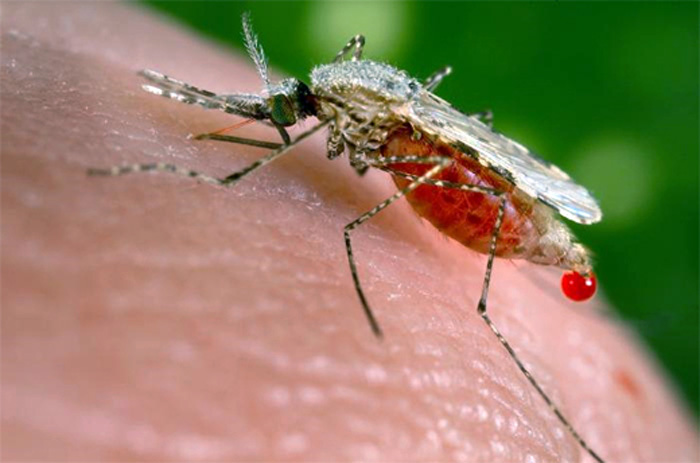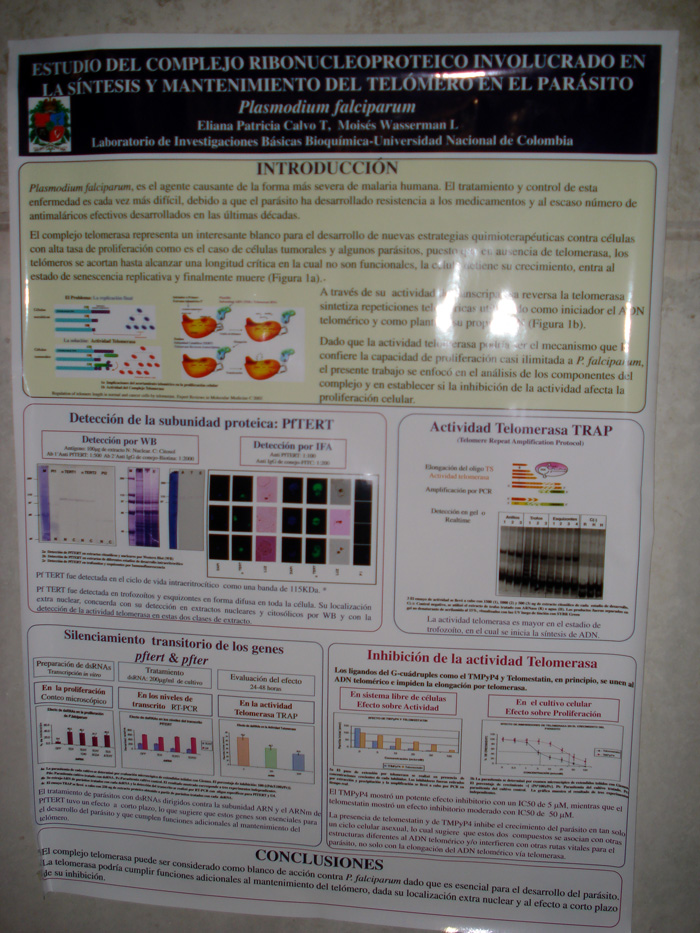The study is about an enzyme called telomerase that is in charge of the quick multiplication of this parasite as well as the cancer cells. This study was carried out by the chemist Eliana Calvo in her doctoral thesis with which she received the attention of the scientific community that studies tropical diseases.
A jury, composed by five outstanding experts that participate in the Congress of the Latin American Federation of Parasitology, highlighted the innovative approach of this project. For this reason, she was awarded the first prize among 13 doctoral theses from Colombian and Latin-American Universities.
"Our work consisted in analyzing how important telomerase is for the parasite. We observed, through different methodologies, that when diminishing or limiting the enzyme, the parasite"s replication diminishes," explained the Scientists, whose thesis was directed by biochemist Moisés Wasserman.
Eliana asserted that several studies have been made about the implications of telomerase in tumor cell replication, but this is the first time in which this event is described in Plasmodium. For this reason this thesis is innovative.
These tinny living beings are characterized by their tremendous capacity to reproduce; from juts one being, between 16 and 48 new individuals can be born in just 48 hours. Thus, it is very important to address the treatment of malaria.
"It is important to mention that these types of complexs, such as telomerase, are present in cells in a silent way: they are activated when cancer appears, in the case of mammals."
The importance of these findings is that parasitologists are going to be able to create new ways of fighting this disease, attacking the parasites without affecting body cells.
"We have determined that the enzyme is not only involved in maintaining this proliferation rate of Plasmodium, but also that it has other functions that are still unknown. This is our new challenge" asserted Eliana Calvo.
 Correo Electrónico
Correo Electrónico
 DNINFOA - SIA
DNINFOA - SIA
 Bibliotecas
Bibliotecas
 Convocatorias
Convocatorias
 Identidad UNAL
Identidad UNAL




